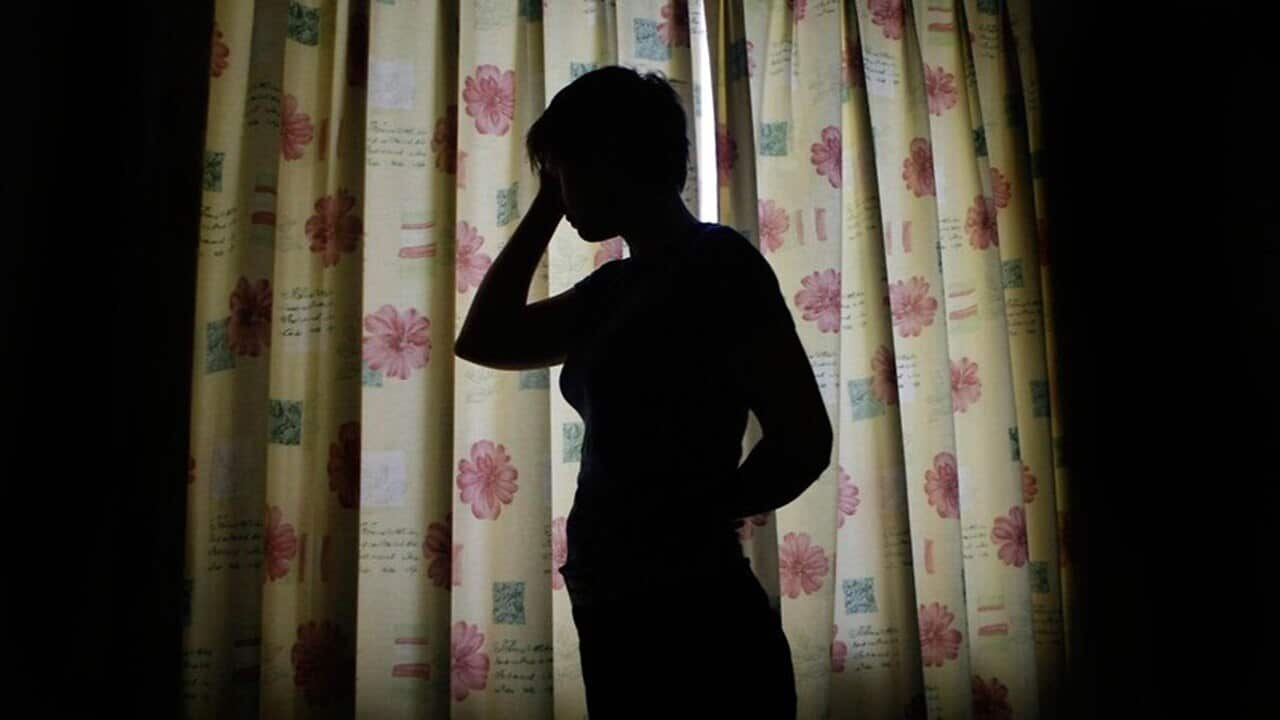Video above: Anti-domestic violence campaigner, Arman Abrahimzadeh, reveals the violence he experienced in his childhood. Full episode on SBS On Demand.
Family lawyer, Malcolm Gittoes-Caesar, is the busiest he’s ever been. Since the COVID-19 pandemic began he, and his team, have been taking on more clients and dealing with a flood of new inquiries.
“We’re certainly seeing an influx of matters that are COVID related, like clients escaping a family violence situation and relocating,” he explained.
Gittoes-Caesar said the rate of family violence incidents is something he’s never seen before.
“Basically every parenting matter that I’ve got has got some aspect of family violence in it,” he explained.
“It’s absolutely worse than usual.”
Gittoes-Caesar currently has between 60 to 70 parenting matters that he’s personally responsible for. These matters range from women and their children fleeing an abusive situation to parents refusing to allow children access to the other parent in what is now being referred to in some courts as “COVID kidnappings”.
“[The pandemic] has absolutely made parenting matters escalate, and it’s made them harder.”
How violence is playing out in the pandemic
A report released by theAustralian Institute of Criminology revealed that during the initial stages of the pandemic more than half of the women surveyed, who had experienced physical or sexual violence before the crisis, said the violence had become more frequent or severe since the start of the pandemic.
Thirty-three per cent of the women said it was the first time they had experienced physical or sexual violence within their relationship.
As COVID-19 drags on, so too has the violence.
“COVID-19 has created new opportunities for people who use violence, so perpetrators of abuse, to exert control over another person and usually it’s within their own family or people that they live with,” said Melonie Sheehan, the national governance and stakeholder engagement manager for 1800RESPECT.
Sheehan said the biggest concern for people who are experiencing violence and who call 1800RESPECT is how they can escape an abusive partner given current curfews and border restrictions.
“There’s also people making contact with 1800RESPECT who report that the person using violence has used COVID-19 to manipulate, to constrain and threaten them in terms of their movements and fear related to their own, and their children’s health and wellbeing.”
What comes next?
As government initiatives like JobKeeper look set to terminate in the coming months, and with no end in sight to the pandemic, Gittoes-Caesar says he expects to get busier.
“A drop in the economy absolutely brings about an increase in family law matters, there’s just more pressure,” he said.
“A lot of marriages break up simply as a consequence of pressure – financial, psychological, family violence - whatever it is, it's still pressure so it’s dire.”
Sheehan also expects to see an increase in reporting of domestic and family violence, explaining that it often takes years for a person to report the violence.
“We do expect that there will be a lag in terms of reporting.”
“I forecast that we’ll see a spike in people accessing support services after the restrictions ease because they’ll feel more able to access the support.”
But Sheehan hopes current campaigns highlighting the issue will only help encourage people to come forward.
“What we hope is that with greater awareness, more people feel more confident in contacting the relevant support services to keep them safe and thriving.”
Both Sheean and Gittoes-Caesar say help is out there, but they stressed that if your life is under threat you need to get out now.
“It’s really important that people reach out.”
If you, or someone you know, needs help you can call 1800RESPECT (1800 737 732), or go on their website to engage in a live chat and to find the relevant support.
Insight is Australia's leading forum for debate and powerful first-person stories offering a unique perspective on the way we live. Read more about Insight
Have a story or comment? Contact Us


